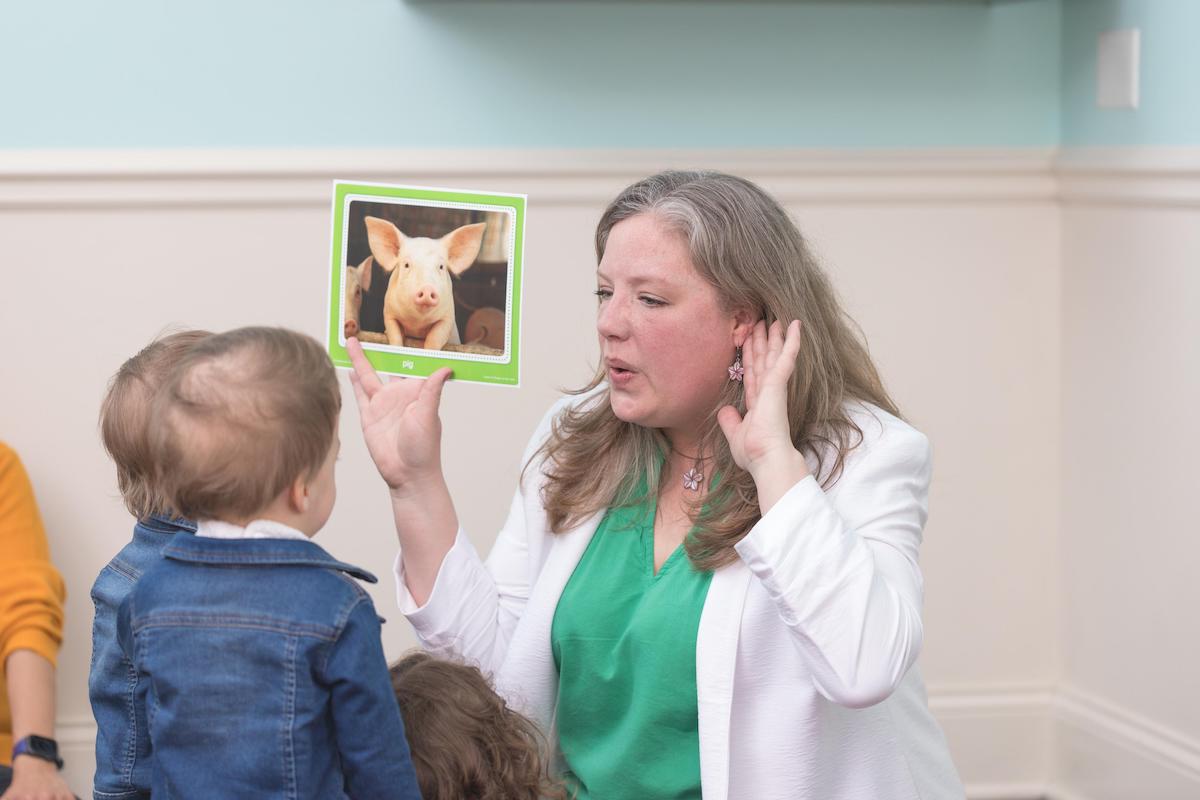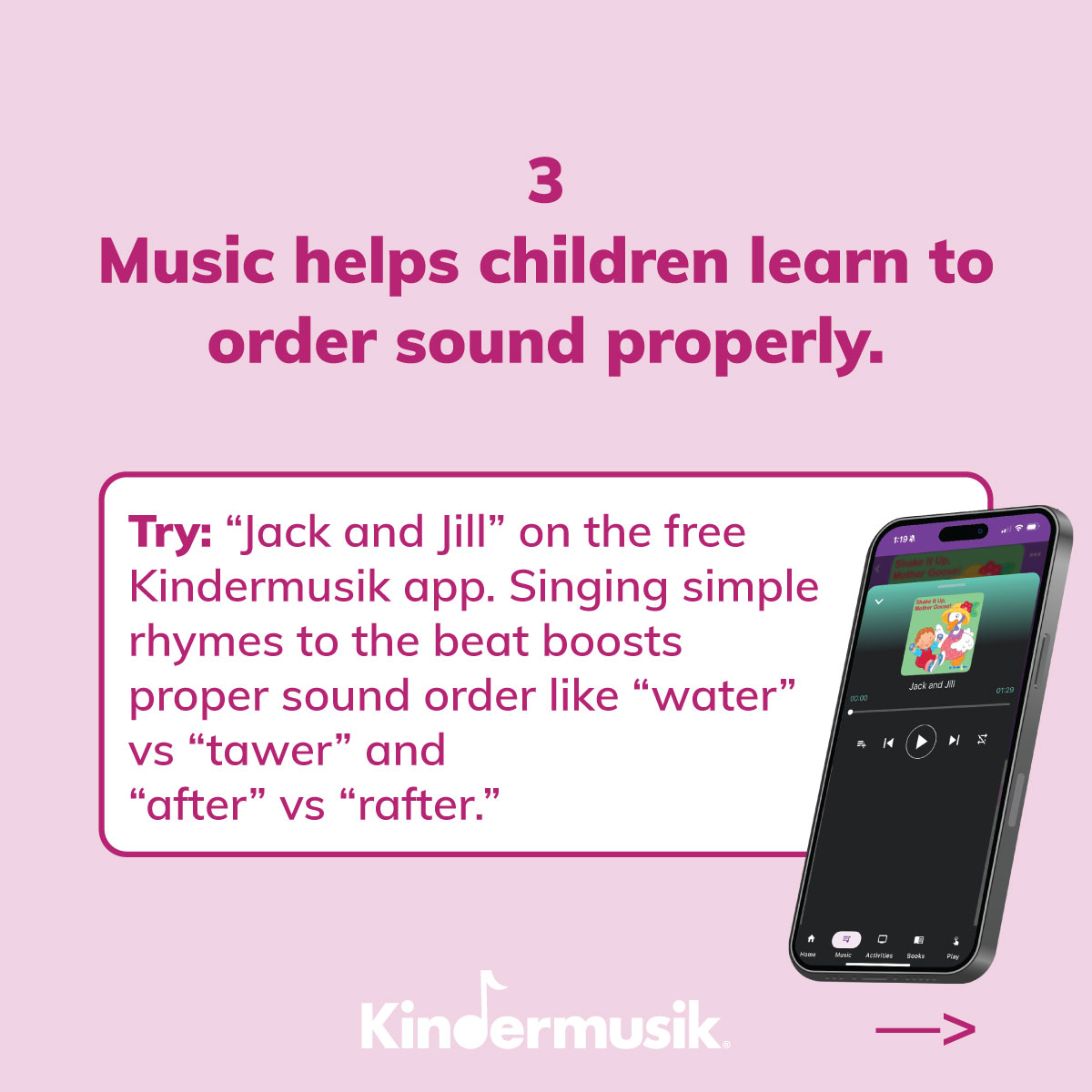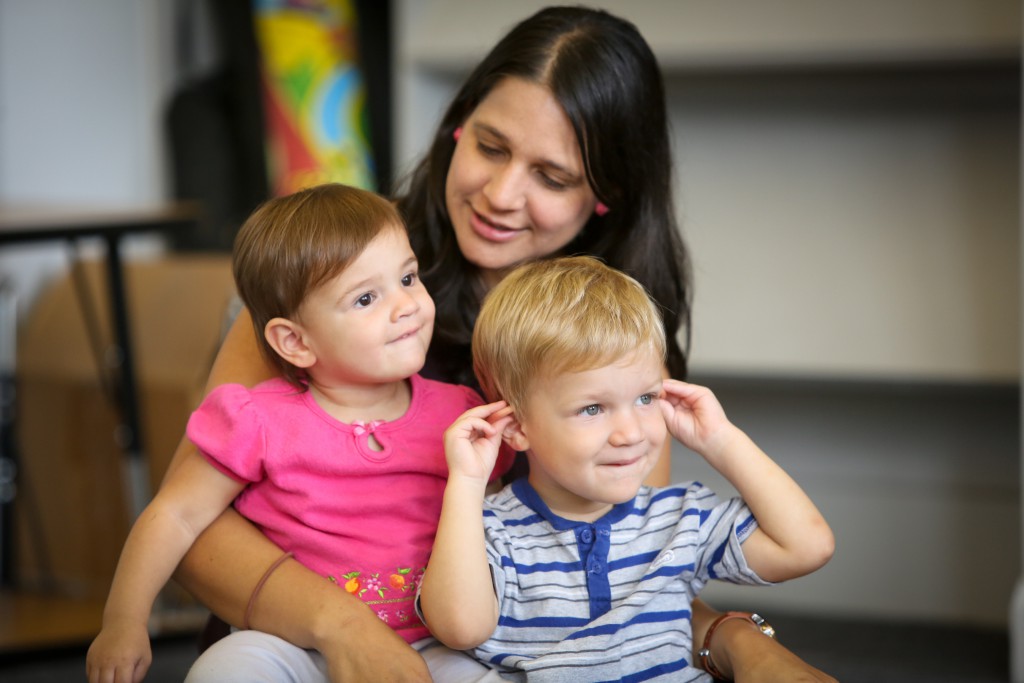3 Ways Music Enhances Auditory Processing
by Kindermusik
3 Ways Music Enhances Auditory Processing
The pressure to establish strong pre-readers can be overwhelming. Early literacy development (the foundations needed for reading and writing) depends greatly on auditory processing skills, which includes auditory identification, discrimination, and sequencing. It’s hard to imagine the time it would take to focus on all of those skill sets individually. But there’s a one-stop-shop.
Shared music making ignites all areas of early literacy development—especially auditory processing—with joy and ease. Here are 3 reasons why and some activity ideas you can try to help foster strong readers.
#1: Music making improves auditory identification.
Early exposure to musical play helps train the ear to pick out individual notes and rhythms. Later on, as children are learning to read, this training helps children be able to identify the different sounds that make up words.
Vocal play with nonsense words is an excellent way to promote auditory identification for toddlers. Try “A Ram Sam Sam” in the free Kindermusik app. It’s a catchy favorite!

#2: Music making refines auditory discrimination.
As children experience and listen for tempo (fast or slow?), dynamics (loud or quiet?), and melodies (up or down, high or low?), they are developing the critical skill of being able to distinguish between sounds—an ability that feeds into phonemic awareness, and is absolutely vital to reading.
Identifying opposites via musical learning is a perfect support for this skill. Try the song “Gonna Shake Out My Hands.” Follow the cues to raise your hands and voice high and low to the lyrics.
Audio Player
00:00
00:00
Use Up/Down Arrow keys to increase or decrease volume.
#3: Music making increases auditory sequencing ability.
Songs and music activities often require children to remember both the detail and order of what is heard and to respond accordingly, thereby increasing the brain’s ability to organize and make sense of sound (a skill that is also required for literacy).
Repeating simple rhymes boosts children’s ability to order sounds, but singing those rhymes to the beat elevates the learning.

Practice makes progress.
As with auditory processing skills and every other factor critical to early literacy, musical play as a tool can’t be a sit-and-forget. Children need repetition to soak in the learning and build on it as they continue the path from pre-reader to reader.
For more ideas on how to support early auditory processing skills, join a class near you, or check out our teaching solutions.
This post was originally authored by Theresa Case who owns an award-winning Kindermusik program at Piano Central Studios in upstate South Carolina.

